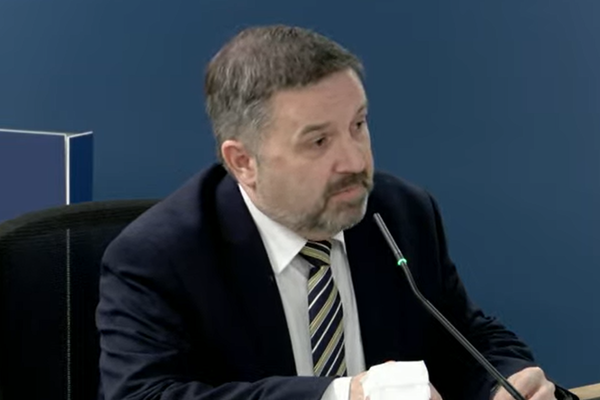
THE teams of two line up on the court, the digital pong ball is released and the game of doubles table tennis is off and running. Only this digital competition is between a pair of human players and a duo of artificial intelligence bots.
What once seemed far-fetched - robots that can learn and adapt - is at the forefront of social debate and is the focus of new psychological research from the University of Newcastle.
"We live in a complex world," Newcastle PhD student Laiton Hedley said when he caught up with Newcastle Herald this week.
"No one does anything on their own anymore, whether it is a heart surgeon with his team of specialists and nurses, or if we look at aviation you have more than one pilot for a plane and help from air traffic control. It is all about team work and collaboration.
"We took it one step further to see how well people can effectively work alongside artificial intelligence."
Mr Hedley and fellow PhD student Murray Bennett decided to launch a study comparing the performance of teams with an AI player and a human player against teams with two human players. The skill level of the AI player was matched to the skill level of the human players to fairly assess teamwork capability. The game - a locally-coded version of the old arcade favourite Pong.
Digital table tennis may not sound like a fair game to play against a team of bots that are pre-programmed to know everything about the 'sport', but the outcome of the study might be surprising to some.
"We found that humans were more intuitive to their partner's behaviour," Mr Hedley said.
"We didn't see this at all with the machine pairs. I think sometimes we cut humanity a bit short. The relationship between two people is something special. We saw in the study that the human pair could work together, notice things about the other player and intuitively change their behaviour to match that of their partner."
So it turns out robots do not make great team mates. Not only did human teams outperform teams that had a robot player, the robot players seemed to lack the competitive edge needed for sports.
"A lot of measures we took from this game were based on team behaviour," he explained.
"When you have machines involved there is a lot more poor behaviour between the players."
The research took almost four years to complete, with the pair starting out prior to the launch of the now popular open AI source Chat GPT. The duo could not have foreseen just how topical their research project would be as many industries start to embrace artificial intelligence in the workplace.
"People always fear what we don't know," Mr Hedley said when asked about the current discussions around AI and job security.
"We use a lot of automation already, such as on your washing machine or keyless car entry. AI is just another tool to make our lives a little easier.
"And maybe it will take a few jobs, but it will also create jobs we probably cannot even imagine yet.
"I feel mostly good about what is to come with AI."
The study, from the Newcastle Cognition Lab at the University's School of Psychological Sciences, has since been published in the journal Topics in Cognitive Science.
Mr Bennett has now moved to America to take up a position as a researcher with The University of Texas in San Antonio. Mr Hedley, from Newcastle, hopes to continue their research into the psychology behind artificial intelligence, including how people can interact with it and its implications on areas such as cyber security.







